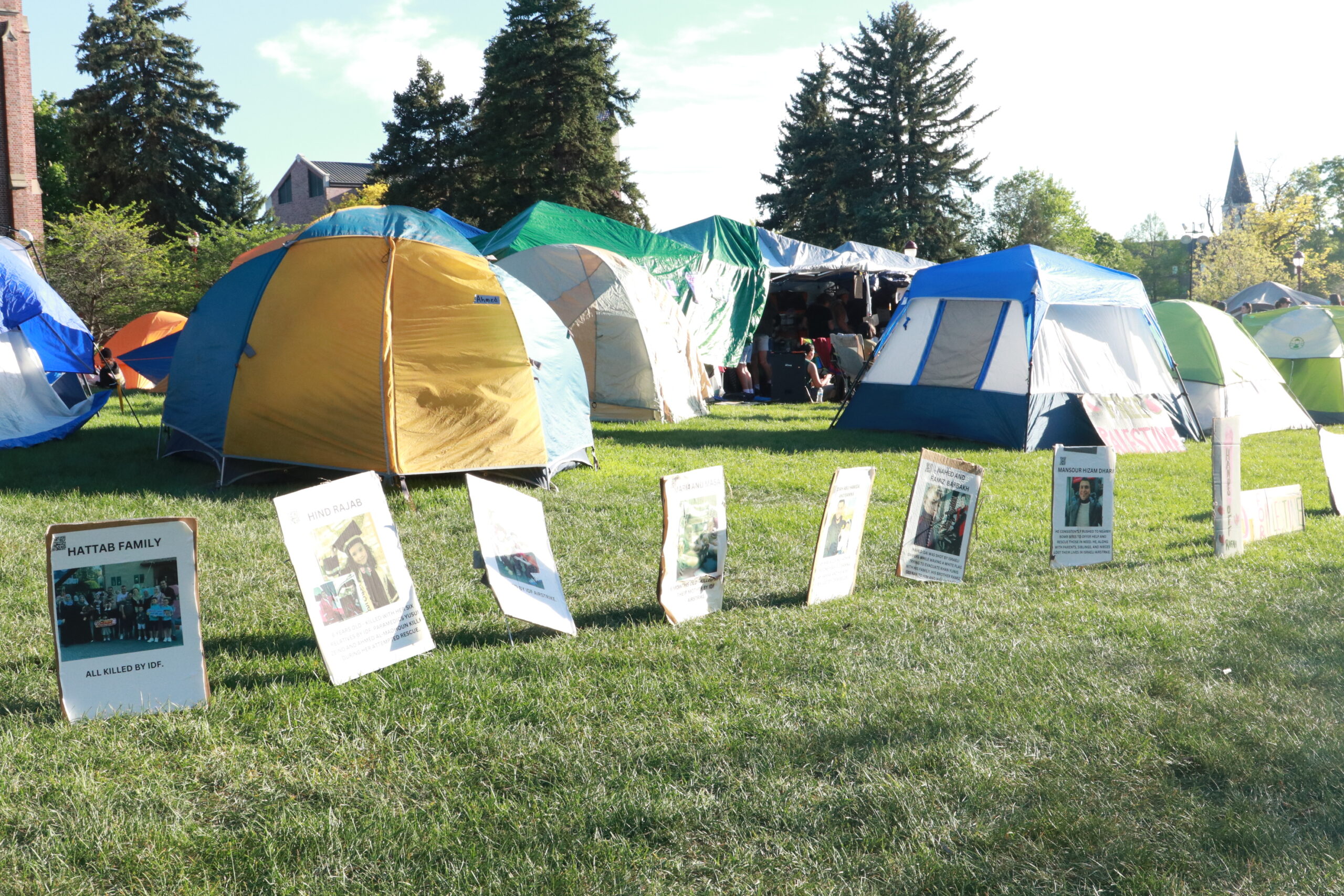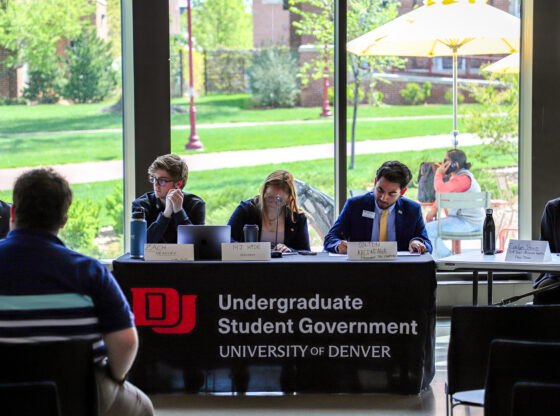Since Sep. 1, a total of 35 DU students have been transported to detoxification and an additional 12 students have been transported to hospitals for high levels of intoxication. According to Sgt. Stephen Banet of the Department of Campus Safety (DCS), there has been an increase in the number of liquor violation calls responded to this year compared to previous years. In reaction to these increased rates, DCS, Student Life and the Alcohol Coalition sponsored by the Health and Counseling Center (HCC) are implementing new efforts for alcohol education.
There are numerous efforts on campus underway to combat the high risk alcohol drinking on campus. HCC has formed an Alcohol Coalition, a committee of students, faculty and staff to generate ideas to decrease high risk drinking on campus. HCC and Student Life have also implemented a computer-based alcohol education program that incoming students take before reaching campus. In addition to this, there was also live programming during Discoveries Orientation week, such as tabling and addressing groups of students, according to Banet.
“The goal isn’t to get college students not to drink,” said Alan Kent, executive director of the HCC and member of the Alcohol Coalition. “We would like them to observe the law if they are underage, but if they choose to drink we want them to act responsibly.”
According to Kent, the Alcohol Coalition is a committee dedicated to exploring the alcohol problems present on campus.
“The Alcohol Coalition is looking to form a broad perspective to see what the campus can do to address the concern about the high number of students that have been transported to the hospital,” said Kent.
According to Kent and Sarah Belstock, program director for health promotion at the HCC, the increased number of detox and hospital transportations could indicate high risk drinking on campus.
“The people being transferred are just the ones that Campus Safety finds, not the ones that manage to make it back to their rooms,” said Kent.
The Alcohol Coalition also assesses different forms of data in order to get an idea of drinking habits and incidents on campus, according to Kent. In addition to the numbers of students going to detox or to the hospital, they also look at how high the Blood Alcohol Content (BAC) of the students in these incidents is and where the incidents are occurring on campus. According to Belstock and Kent, surveys are also taken into consideration when gathering the assessment.
“In the spring we sent out a North Central Association of colleges health assessment,” said Belstock. “It was a nationwide survey. It’s anonymous and contains a lot of detailed questions about drinking habits and behavior. It gives us information about campus-level impact of alcohol, not just the students who are getting caught.”
The Coalition has met twice so far and plans on continuing to use data and surveys to help identify students to reach out to in order to prevent high risk drinking behavior. Although in early stages of planning, the Coalition is also looking to collaborate with other student organizations, such as the Undergraduate Student Government (USG), to create alternative late night activities, according to Belstock.
Despite these efforts, DCS is still receiving calls from housing staff as well as encountering highly inebriated students on patrol.
“It not only affects the inebriated person, but it affects their neighbors and roommates. It can be a huge issue,” said Banet. “This really affects how DU is viewed by the surrounding community.”
There have also been numerous reports from the area surrounding the DU campus about parties happening off campus. DCS is informed of these incidents by the Denver Police Department (DPD) if they believe that DU students are involved. According to Banet, these students can receive criminal charges for disturbing the peace as well as sanctions from the Office of Student Conduct if DCS is called.
“It’s alarming,” said Banet. “Our primary concern is life safety. Just in this year we’ve had 12 students hospitalized because detox refused to be liable for treating them.”
In addition to an increase of detoxification and hospitalization as a result of alcohol consumption, there has been a rise of incidents involving fake IDs. The official charge for this is counterfeit and forgery.
“Fake IDs are a fairly substantial problem on campus,” said Banet. “It’s stupid to have one.”
Last year by the end of September there were 29 incidents involving fake IDs. This year over the same time frame there were 33 documented incidents, which is almost a 14 percent increase. Banet says many of these IDs are discovered when the students hand them to an officer to try to prove they are old enough to drink, or when wallets are lost and two separate driver’s licenses are discovered.
Kent and Belstock also recognized the problem of fake IDs on campus, saying students need to be aware of the serious consequences that could come from having one.
“It’s a potential federal charge, which can create a lot of issues as students are moving forward,” said Belstock. “It can affect applying for student visas when they study abroad, even licenses or certifications for their careers in the future. We really don’t want them to make a mistake that can impact their abilities to reach their goals.”
HCC is holding an alcohol screening day on Nov. 6 in Nelson Hall where counselors from HCC will be taking brief anonymous assessments of students and their drinking behavior. This screening will also help make sure students’ drinking decisions are not having an impact on students’ long-term goals, according to Belstock.
“We’re really trying to let students know that they have resources available to them on campus, as well as how to reach out to a friend that may be in need of help,” said Belstock. “We are also looking to train student leaders to make sure they have the information and skills they need to pay it forward to their fellow students.”
The coalition hopes to be able to create late night alternatives and events in the future to help bring down the number of students involved with high-risk drinking, according to Kent.
“In focus groups, students have said that they don’t like the drinking culture on campus and that the party culture has interfered with their enjoyment of their experience,” said Kent. “We’d like to offer these students alternatives.”











